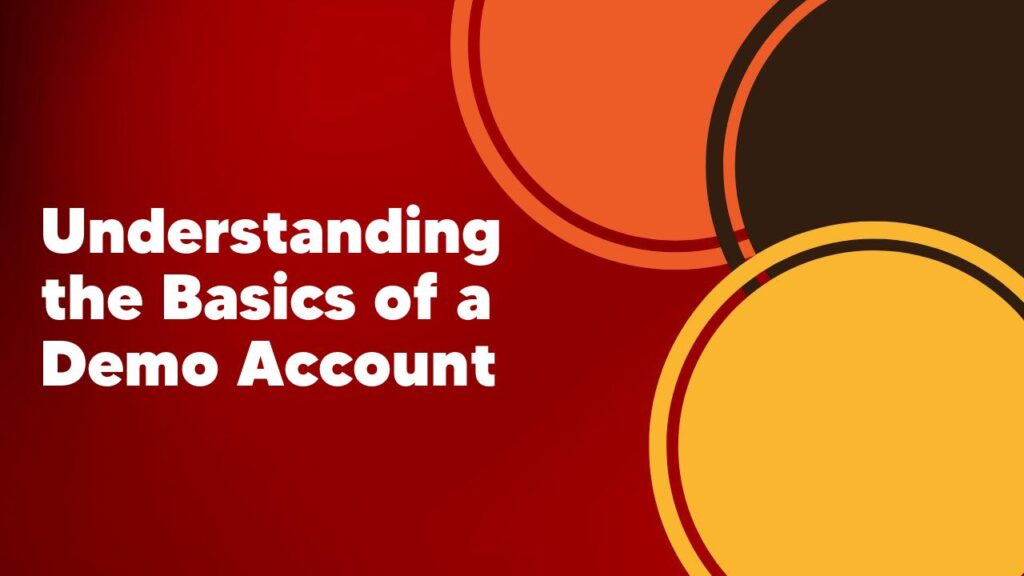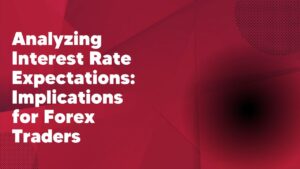A demo account is a valuable tool for traders who are new to the financial markets and want to gain practical experience without risking real money. It provides a simulated trading environment where users can practice executing trades, analyzing market trends, and managing their portfolio. By using a demo account, traders can familiarize themselves with the various financial instruments and trading platforms available, as well as develop and test their own trading strategies. The advantages of using a demo account include the ability to learn at one’s own pace, without the stress and pressure that comes with real trading. Additionally, it allows traders to identify and correct any mistakes or weaknesses in their trading approach before transitioning to a live trading account. In this article, we will explore the basics of a demo account and how it can help traders in their journey towards becoming successful in the financial markets.
Introduction to Demo Accounts
A demo account is a powerful tool that allows beginner traders to practice and familiarize themselves with the forex market without risking any real money. It provides a simulated trading environment that mirrors the real market conditions, allowing traders to execute trades, analyze market trends, and test various strategies. Demo accounts are offered by most forex brokers and can be accessed through their trading platforms. By using a demo account, traders can gain valuable experience and develop the necessary skills and knowledge needed to succeed in the forex market. It allows traders to understand how different trading tools and indicators work, and also helps them get a feel for the emotional aspects of trading, such as dealing with losses and managing risk. Additionally, demo accounts can be used to test and refine trading strategies, as traders can analyze their performance over a period of time and make adjustments accordingly. In conclusion, a demo account is an essential tool for beginner traders in the forex industry, as it provides them with a risk-free environment to learn and practice trading skills, ultimately increasing their chances of success in the real market.
Benefits of Using Demo Accounts
Demo accounts are a valuable tool for both beginner and experienced forex traders. One of the main benefits of using a demo account is that it allows traders to practice their strategies in a risk-free environment. This is especially useful for beginners who are still learning the ropes and want to familiarize themselves with the trading platform. Additionally, demo accounts allow traders to test out new strategies and indicators without the fear of losing real money. This can help them refine their trading approach and gain confidence before they start trading with real funds. Another benefit of demo accounts is that they offer access to real-time market data, allowing traders to analyze charts and trends just as they would with a live account. Lastly, demo accounts also allow traders to experience different trading conditions, such as volatility and market news, which are essential aspects of forex trading. Overall, demo accounts are a valuable tool that can help traders sharpen their skills, test new strategies, and gain confidence in their trading abilities without risking any real money.
How Demo Accounts Work
Demo accounts are an essential tool for anyone looking to venture into the world of forex trading. These simulated trading accounts allow users to practice their trading strategies and familiarize themselves with the forex market without risking any real money. The way demo accounts work is quite simple. Traders are provided with virtual funds, typically in the form of play money, to use for trading. They can then access the same features and tools available in live trading accounts, such as real-time market data, charting tools, and various indicators. This enables traders to execute trades and monitor their performance just as they would in a live trading environment. Demo accounts also serve as a platform for traders to test different trading strategies and assess their effectiveness. By analyzing the outcome of their trades, traders can learn from their mistakes and modify their strategies accordingly. In conclusion, demo accounts play a crucial role in forex trading education and can significantly enhance a trader’s skills and confidence before transitioning to live trading with real funds.
Choosing the Right Demo Account
When it comes to trading forex, choosing the right demo account is crucial for success. A demo account is a platform that allows traders to practice trading in a risk-free environment, using virtual money instead of real funds. However, not all demo accounts are created equal, and it is important to select one that aligns with your trading goals and preferences.
Firstly, consider the type of trading platform offered by the demo account. Ensure that it is user-friendly and equipped with the necessary tools and indicators that you would be using in your actual trading. This will help you become familiar with the platform and its functionalities, which will ultimately improve your trading efficiency.
Secondly, consider the trading conditions provided by the demo account. Look for a demo account that offers competitive spreads, fast execution, and access to a wide range of currency pairs. This will give you a realistic trading experience and allow you to test different strategies and currency pairs.
Thirdly, look for a demo account that provides real-time market data. This will ensure that the prices and trends you are observing are accurate, giving you a true representation of the market conditions. Being able to analyze real-time data will help you develop better trading strategies and make more informed decisions.
Additionally, it is important to choose a demo account that offers a sufficient amount of virtual funds. This will allow you to experiment with different positions and trade sizes without worrying about depleting your account. A larger virtual balance will also enable you to test your risk management skills effectively.
Lastly, consider the customer support and educational resources offered by the demo account provider. A reliable and responsive customer support team can help answer any questions or address any issues you may have during your demo trading journey. Access to educational resources such as tutorials, webinars, and trading guides will also be beneficial in expanding your knowledge and improving your trading skills.
Overall, taking the time to choose the right demo account will lay a solid foundation for your forex trading journey. It will provide you with a risk-free environment to practice and refine your skills, allowing you to gain confidence before transitioning to live trading with real money.
Strategies for Demo Trading
Demo trading is an essential step for beginners in the Forex industry as it provides a risk-free environment to practice and develop trading skills. To make the most out of demo trading, it is crucial to have a well-defined strategy in place. Firstly, it is important to set specific goals and objectives for the demo account, whether it’s to test a particular trading system or to practice specific trading techniques. Secondly, traders should carefully select the currency pairs they want to focus on and become familiar with their market conditions and behavior. This helps in gaining a deeper understanding of the price movements and developing a profitable trading approach. Thirdly, it is advisable to keep a trading journal to document each trade, including the reasons for entering and exiting trades, the analysis conducted, and any lessons learned. This journal helps in evaluating performance and identifying areas of improvement. Additionally, traders must stick to their risk management plan, which includes setting stop-loss and take-profit levels, and not exceeding a predetermined risk percentage per trade. Finally, traders should not be discouraged by failures in demo trading as it is a learning curve. Instead, they should use it as an opportunity to fine-tune their strategy and improve their skills before transitioning to live trading. Demo trading is a vital tool for novice traders to gain confidence and competence in the Forex market.
Mistakes to Avoid in Demo Trading
When it comes to demo trading in the Forex industry, there are several mistakes that beginners often make. Firstly, many traders fail to treat their demo account as seriously as they would a live account. This is a big mistake, as demo trading is meant to simulate real market conditions and provide invaluable practice. Secondly, traders sometimes neglect to set realistic goals and expectations when using a demo account. It is important to remember that demo trading can differ significantly from live trading, so it is crucial to not get carried away by any successful trades. Thirdly, some traders make the mistake of not thoroughly understanding their demo trading platform. This can lead to missed opportunities and confusion when executing trades. It is advisable to spend time familiarizing oneself with all the features and functions of the platform before diving into demo trading. Another mistake to avoid in demo trading is overtrading. In the absence of real money at stake, traders might be tempted to take excessive risks and open too many positions. This can create unrealistic performance results and distort one’s perception of actual trading conditions. Lastly, traders should not solely rely on the demo account to gauge their trading skills. It is essential to seek feedback from experienced traders, attend webinars, and read educational materials to further refine trading strategies. Overall, by avoiding these common mistakes, traders can make the most out of their demo trading experience and become better prepared for live trading in the Forex market.
Transitioning from Demo to Live Trading
Transitioning from demo to live trading can be both exciting and daunting. After gaining confidence and consistency in your demo trading, it’s time to take the next step and open a live trading account. However, it’s important to remember that trading with real money involves a different set of emotions and pressures. It’s normal to feel a heightened sense of anxiety and fear when risking your own funds. To ease this transition, start with a small trading account size and carefully manage your risk. Implementing proper risk management strategies, such as setting stop-loss orders, can help protect your capital and minimize potential losses. Additionally, continue to educate yourself and stay up-to-date with market news and analysis. Remember, transitioning from demo to live trading is a learning experience, so it’s important to be patient with yourself and continuously evaluate and refine your trading strategies. With time, practice, and discipline, you can navigate this transition successfully and potentially become a profitable forex trader.
Conclusion and Next Steps
In conclusion, the Forex market is a dynamic and ever-changing industry that offers numerous opportunities for traders. It is important to approach trading with a solid understanding of the market and a well-defined trading strategy. Through careful analysis of market trends, economic indicators, and risk management techniques, traders can increase their chances of success in Forex trading. It is also important to continuously educate oneself and stay updated on the latest developments in the industry. By staying disciplined and patient, traders can navigate the ups and downs of the market and ultimately achieve their financial goals. As the Forex market continues to evolve, it is crucial for traders to adapt and refine their strategies accordingly. Experimentation and learning from both successes and failures are vital in improving trading skills. By taking these steps, traders can maximize their earnings and thrive in the exciting world of Forex trading.
Conclusion
In conclusion, a demo account is a valuable tool for both beginner and experienced traders. It allows users to practice trading strategies, test out different platforms, and familiarize themselves with the market without risking any real money. Through the use of virtual funds, traders can gain confidence and develop their skills in a risk-free environment. Additionally, demo accounts provide an opportunity to explore new trading instruments and techniques, helping users to stay updated with the latest trends and developments in the industry. By taking advantage of the benefits offered by a demo account, traders can enhance their trading abilities and make informed decisions when transitioning to live trading. Overall, a demo account is an essential resource for anyone looking to learn and improve their trading skills, providing a safe and effective way to gain hands-on experience in the financial markets.
What is a Demo Account?
A demo account is a practice account provided by brokers to allow traders to practice trading without using real money. It simulates real market conditions and allows traders to familiarize themselves with the trading platform.
How does a Demo Account work?
With a demo account, you are given virtual money to trade with. You can place trades, monitor market movements, and test different strategies, just like you would with a real account. The only difference is that you are not using real money.
Is a Demo Account free?
Yes, most brokers offer demo accounts for free. It’s a way for them to attract potential clients and allow traders to get a feel for their platform before deciding to open a real account.
Can I make real profits with a Demo Account?
No, you cannot make real profits with a demo account. Since you are using virtual money, any profits or losses made in a demo account are not real. The purpose of a demo account is to practice trading and improve your skills.
Can I switch from a Demo Account to a real account?
Yes, most brokers allow you to switch from a demo account to a real account when you are ready. However, keep in mind that trading with real money involves risk, so it’s important to have a solid understanding of trading before making the switch.
How long can I use a Demo Account?
The duration of using a demo account varies from broker to broker. Some brokers offer unlimited access to their demo accounts, while others may have a time limit, such as 30 days. It’s best to check with your broker for the specific duration of their demo account.


